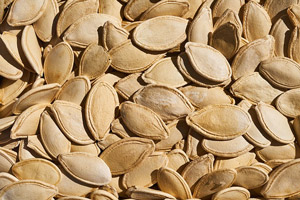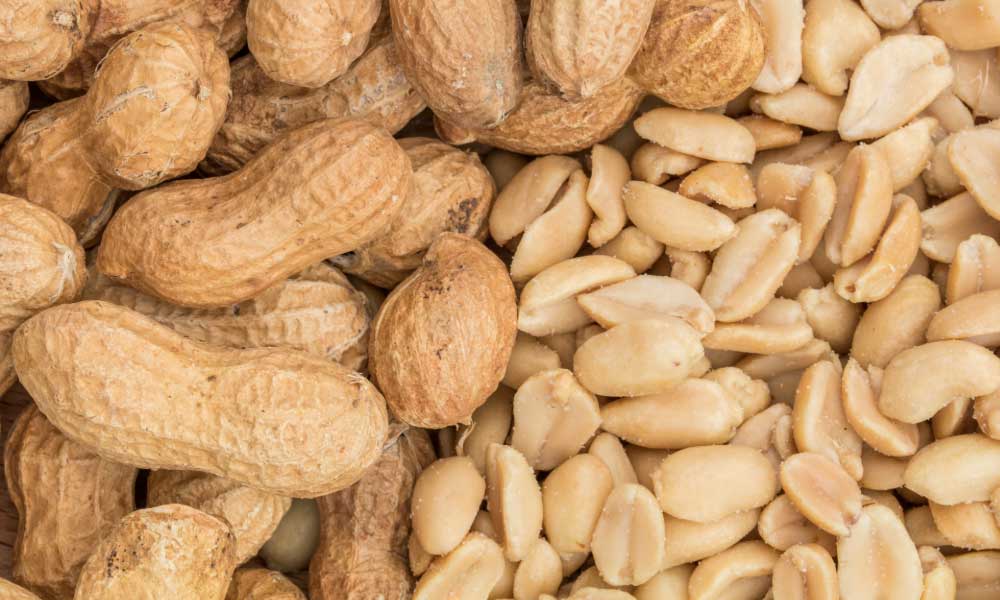Pumpkin Seeds Description & Health Benefits
 Pumpkin seeds, also called pepitas, are a member of the Cucurbitaceae botanical family which also includes winter and summer squash varieties.
Pumpkin seeds, also called pepitas, are a member of the Cucurbitaceae botanical family which also includes winter and summer squash varieties.- Pumpkin seeds are a good source of protein, magnesium, zinc and copper.
- Protein is a building block for the body. Protein assists the body in repairing or making new cells. It’s important for growth and development in infants, children, teens and pregnant women.
- Magnesium controls muscle and nerve function, blood pressure and blood sugar levels.
- Zinc is important in growth and development, wound healing and helping the body fight off foreign invaders such as bacteria and viruses.
- Copper is essential for energy production, connective tissue formation and iron metabolism.
Purchasing, Selecting, Storing, and Preparing
- Purchase pumpkin seeds at a grocery store year round. Pumpkin seeds are sold raw or roasted, with or without hulls. The hull is the protective white coating surrounding the green seed. Hulls are edible.
- Select seeds that are firm and avoid those that are wilted, musty or rancid smelling.
- Store pumpkin seeds in an airtight glass container. Pumpkin seeds have a two to three month shelf life if left at room temperature. Refrigerate for a shelf life of up to one year.
- Seeds can also be harvested from a mature pumpkin. Cut the pumpkin in half and remove the seeds and fleshy material surrounding them. Remove seeds from the fleshy material, rinse in a colander if desired. Seeds can be roasted with small amounts of pumpkin flesh to add flavor.
- To roast, add a small amount of oil to the clean, dried seeds. Place in a preheated oven at 250°F for 10-15 minutes, depending on the size of the seeds.
- To remove the outer white hull, boil, dry or roast whole seed. Hulls may slip off after boiling or need to be cracked individually to remove after roasting or drying. Removing the hull is a time consuming process that is not necessary, but may be desired to reduce the chewiness of the seed.
- Use pumpkin seeds in soups, salads, grain dishes, or parfaits. Enjoy as a complement to any dish.
Nutrition Facts
1 oz. or 2 tablespoons pumpkin seeds, raw
Calories: 160 | Protein: 9.0 g | Fat: 14.0 g | Carbohydrate: 3.0 g | Fiber: 2.0 g | Calcium: 20 mg | Magnesium: 12 mg | Iron: 25.2 mg
ndb.nal.usda.gov

Recipes
Request an Appointment
